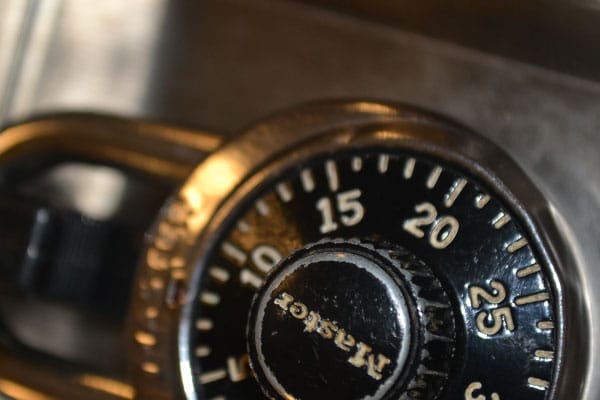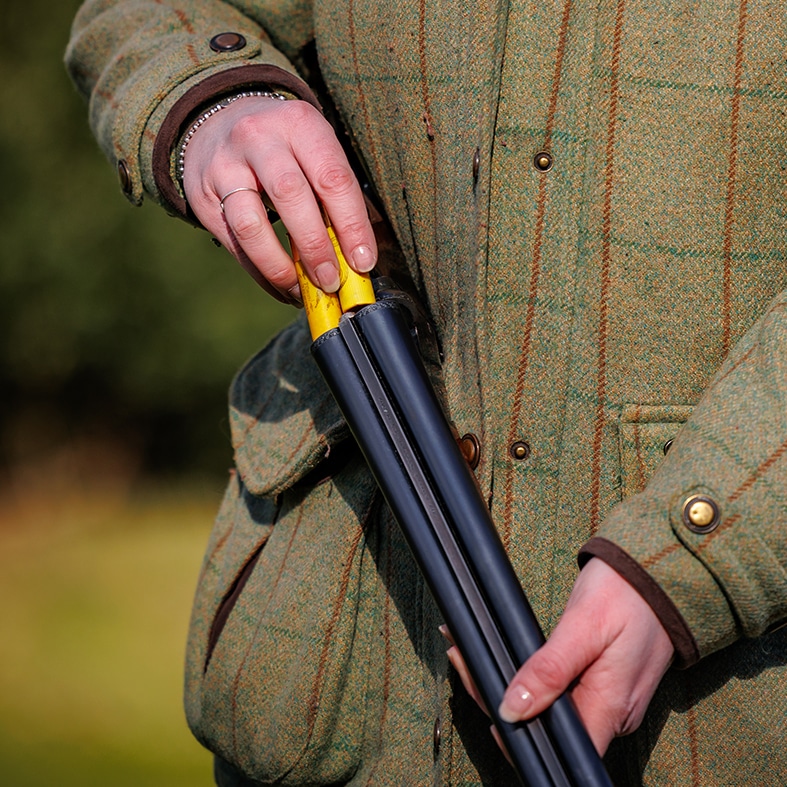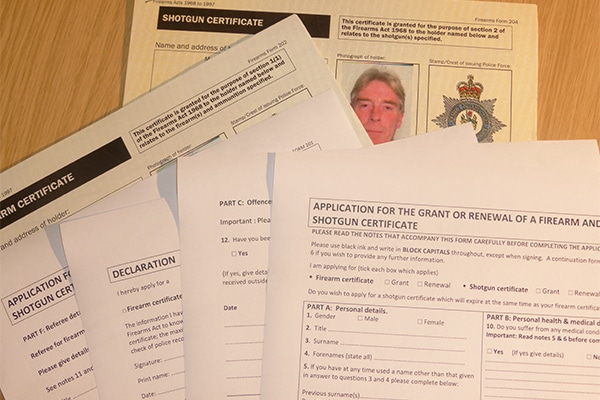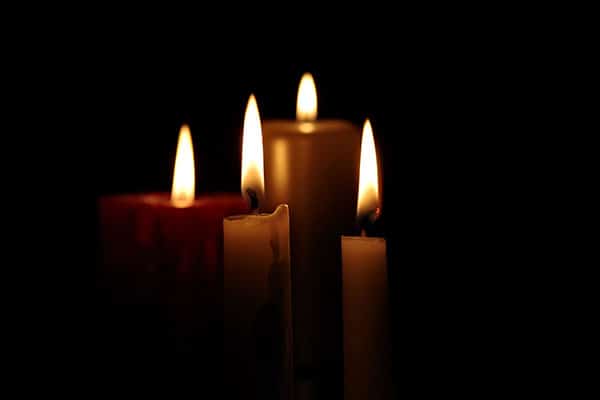
Firearms storage in rented accommodation
Advice and guidance for tenants and landlords on the issue of keeping firearms in rented accommodation.
Get information on the legal shooting season for mammals and birds in the UK.
Apply for funding for your project or make a donation today
Comprehensive information and advice from our specialist firearms team.
Everything you need to know about shotgun, rifle and airgun ammunition.
Find our up-to-date information, advice and links to government resources.
Everything you need to know on firearms law and licensing.
All the latest news and advice on general licences and how they affect you.


It is estimated that there are more than 1.5 million shotguns held legally in Great Britain. BASC and wider society demand that they are used in a safe and responsible manner. This leaflet provides a code of practice for those who acquire and use shotguns and, if followed, will ensure a safe and responsible future for the sport.
High standards underpin public and political support for shooting, now and in the future.
The code provides advice at two levels:
The following golden rules apply:
Above all, safety is the most important consideration. Always be aware of the direction in which the muzzle of your shotgun is pointing and never point it in an unsafe direction. Whenever you shoot, you should know where the shot will fall before you pull the trigger.
Follow these simple directions to be safe:
To prevent a shotgun falling out of your slip fastening should it fail, keep it with the barrels down and stock up when slung over your shoulder.
A shotgun should be opened before removing it from the slip to check that it is unloaded.
Do not touch the trigger, even at this stage. Your next action should always be to check that the barrels are clear while pointing the gun in a safe direction.
Don’t point the muzzle end of the slip at anyone.
Remember, a shotgun should always be considered loaded until proven empty and even then still handled as if it were loaded.
On replacing the shotgun in its slip, you should check that the gun is unloaded, then insert the barrels first before closing the gun and fastening the slip.
If in doubt about which types of cartridges are safe to use in your gun, check the flats of the barrels. You are looking for the proof marks, gauge or bore and chamber length of your gun. If you are not sure what it all means, then ask someone who does know. Your local club, gun shop, or police licensing department will always be pleased to help.
When you are not shooting but have the gun out of its slip, it should be carried empty, open and over the crook of the arm, not over the shoulder or in any other way. The muzzles should not be rested on your feet.
When passing a gun to someone, it should always be proved empty; that is: open, empty and passed stock first so that the empty chambers are visible.
Open the gun and remove the cartridges, then close the gun and, ensuring that the muzzles do not point at you, lean the gun with stock down and barrels up against or partially through the obstacle so that it cannot slip or fall.
Otherwise, place the gun carefully on the ground and out of harm’s way so that you can easily reach it from the other side.
Climb over the obstacle and retrieve the gun, again using appropriate muzzle awareness, open the gun, check the barrel for obstructions and continue. Carrying the gun over the obstacle is not a good idea.
Guns should be open and unloaded and held by one person while the other person climbs over the obstacle.
The guns are then passed over (open, empty and stock first) one by one; the other person then climbs over and retrieves their shotgun on the other side.
Shooting safely is paramount and you should always abide by the following statements:
BASC promotes and insists on safe and sensible behaviour by shooters in all disciplines. You should act on these points to reassure shooters and non-shooters alike that you can be trusted with a shotgun:
Above all, be safe and sensible.
Always ensure that your shotgun is in a safe and serviceable condition.
Hammer guns require particular care, such as carrying them uncocked, except when a shot is imminent.
Pump-action and self-loading shotguns, such as semiautomatics, also require care, as it is more difficult to check their status (i.e. whether they are loaded or not) than the standard single or double-barrelled shotgun. For added safety it is always good practice to store such a gun with a breech flag in the chamber to indicate that it is empty and safe.
Always clean and dry your shotgun after use. Never put a damp gun into a steel cabinet.
If a fault develops, have it rectified before using the gun again.
Never use a gun with badly dented or pitted barrels. Have your gun serviced regularly by a competent gunsmith.
Ensure that the cartridge type and shot size are suitable for both your purpose and your gun. Find out more information and advice on using sustainable ammunition.
Never imagine that a heavy load and a tight choke justify shots at extreme range.
Do not allow cartridges of different bores to become mixed.
A smaller size (say a 20 bore) can be inadvertently loaded into a 12 bore gun and lodge in the barrel. If a 12 bore cartridge is then loaded and fired, it can burst the barrel and cause fatal injuries.
In the case of a misfire, keep the barrels pointed in a safe direction and, after waiting 30 seconds, open the gun cautiously away from the body.
It is an offence (except in certain circumstances) to possess a shotgun without a current shotgun certificate or temporary police permit.
It is an offence to give or sell a shotgun to someone who is not authorised to possess it – usually by virtue of a shotgun certificate.
When acquiring a shotgun, you must inform the police force which issued your certificate. If you give or sell a shotgun to anyone (or lend a gun for more than 72 hours), you must enter it on the other person’s certificate and also notify the police force which issued your own certificate. This must be done within seven days, by recorded delivery or by email to the specified address given by the police.
It is an offence to sell or offer for sale a shotgun which is out of proof.
One certificate holder may borrow a shotgun from another for 72 hours or less without notifying the police or entering the details onto the borrower’s certificate.
It is an offence to sell cartridges to someone without seeing their shotgun certificate, except where the recipient is a Crown servant or where a person produces a certificate authorising another person to possess such a gun, together with that person’s written authority to purchase the ammunition on his behalf.
You are responsible for the security of any shotgun(s) in your possession at all times.
When not in use, shotguns must be stored securely, in order to prevent – so far as is reasonably practicable – access by unauthorised persons. When in use, reasonable precautions must be taken for their safe custody.
It is an offence to sell or hire a shotgun to someone under 18 years of age.
It is an offence for a person under the age of 15 to have with him or her an assembled shotgun, except while under the supervision of a person of 21 years old or more, or while the shotgun is so covered with a securely fastened gun cover that it cannot be fired.
It is an offence to be in possession of a loaded shotgun in a public place without lawful authority or reasonable excuse.
It is an offence to shoot game on Sundays and Christmas Day in England and Wales. In Scotland there are no statutory restrictions on the killing of game on Sunday or Christmas Day but it is not customary to do so.
In Scotland and certain counties in England and Wales, it is an offence to shoot wildfowl on Sundays. If you are unsure, always check, never guess at what the law requires.
All birds and many animals are protected. There is an ‘open’ season for quarry species and it is an offence to kill or attempt to kill them at other times of the year or possibly at night.
If you are complying with firearms law, you can shoot certain pest bird species. These are covered by general licences which, in simple terms, mean you can shoot the birds listed, provided you have the landowner’s permission and provided you are doing it for one of the reasons allowed by the licence.
These reasons may include:
The species listed on the general licences and the purposes for which the licences are issued can vary between countries.
BASC strongly recommends that anyone wishing to control pests under the authority of a general licence should read the advice available here online at basc.org.uk/gl
It is an offence to shoot wildfowl or game with a self-loading shotgun having a magazine capacity of more than two cartridges.
A non-certificate holder may only borrow a shotgun under the statutory exemptions. This is typically under Section 11A of the Firearms Act 1968. This allows an authorised person to lend a shotgun to a non-certificate holder to use on private premises in the presence of the authorised person; or at a clay pigeon shoot where the chief constable has approved the time and place for the shooting of artificial targets under Section 11(6) of the Firearms Act 1968.
Remember, ignorance of the law is no excuse. If in doubt, always ask.
Keep your shotgun secured – preferably in a purpose-built gun cabinet – when not in use. Ensure that no-one else has access to the keys – remember it is your responsibility to ensure that an unauthorised person (which includes anyone who hasn’t got a shotgun certificate) does not have access to your guns.
Store your shotgun ammunition separately from your guns.
The law does not require you to keep shotgun cartridges secure; however, it is good practice to do so. They are best stored in a cool, dry place where inquisitive children cannot get hold of them.
When travelling in a vehicle, keep your guns and ammunition out of sight, preferably in a locked luggage compartment.
It is preferable to keep the guns in their slips or cases. If you have to park your vehicle for any reason, park it where you can see it, if at all possible.
The vehicle must be locked and any anti-theft devices set. It is a good idea to park in a manner that prevents easy access to the part of the vehicle containing your guns, such as backing the car very close to a wall to make it difficult for a thief to get at the boot.
Where possible, remove the fore-end of the shotgun and take it with you. There are also various security devices that can be used if necessary.
BASC has a simple assessment, carried out by accredited assessors, called the Safe Shot Award. It is not a test of competence. The assessment takes just 20 minutes and can be done at a game fair or organised by you anywhere in the UK. To find out more about the Safe Shot Award, please contact the BASC training and education department on
01244 573 018.
If you require a shotgun coaching lesson or want to learn more about shooting sports, contact your local BASC-accredited shotgun coach.
It is advisable to have adequate legal liability (third party) insurance when shooting. Membership of BASC currently provides insurance.
Get more details on our membership packages here, or contact us at:
Email: membership@basc.org.uk
Head Office,
Marford Mill, Rossett,
Wrexham LL12 0HL
Tel: 01244 573 00
The BASC ideal is that all who shoot conduct themselves according to the law and to the highest standards of safety, sportsmanship and courtesy, with full respect for their quarry and a practical interest in wildlife conservation and the countryside.
Never guess at what the law allows. If in doubt, contact BASC or your local police firearms licensing department. Training courses are available from BASC on the safe and proficient use of shotguns; contact BASC training and education on 01244 573 018.
Always follow the appropriate code of practice for the type of shooting you are undertaking. A series of shotgun safety videos can be found on the BASC YouTube channel.

Advice and guidance for tenants and landlords on the issue of keeping firearms in rented accommodation.

Firearms licensing is in crisis right now, so what can you do to give yourself the best chance of getting your renewal approved sooner rather than later?

Read our guidance on dealing with firearms when you die, including advice for your next of kin or executors on how to remain within the law.